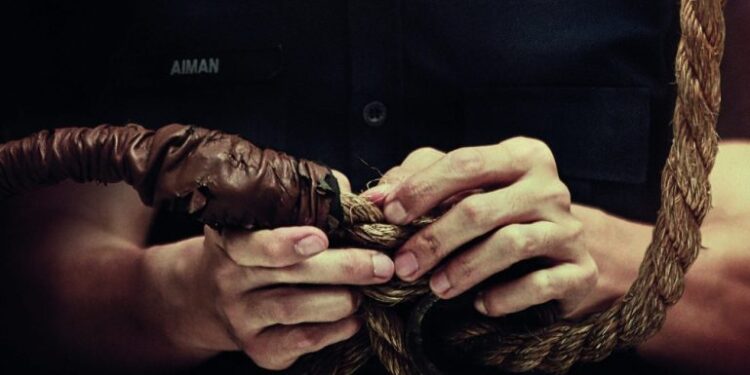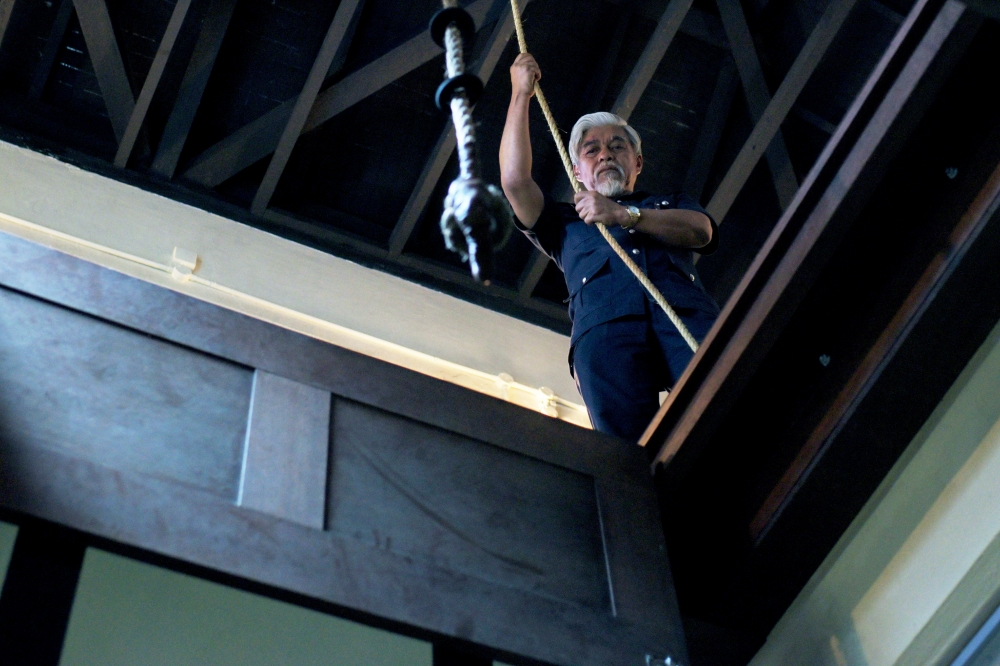Cannes Film Festival – six years after presenting her first feature film Sandcastle to the Criticismthe Singaporean filmmaker Boo Junfeng returns to Cannes with his new feature film Apprentice In competition in the selection A certain look.
For a little over an hour and a half, this drama immerses us relentlessly in the corridor of death.
Synopsis In Singapore, Aiman (Firdaus Rahman) officiates in a high security prison. Rahim (Wan Hanafi Su), the chief executioner, accompanies the last days of the convicts. Quickly, he took the young goalkeeper under his wing and teaches him the tricks of the profession. Aiman turns out to be a very applied performer, but his conscience and his true motivations gradually catch him …
So here we are in the prison universe, but this time, not on the side of the assassins or thieves, but that of the guards and even the executioners.
With the young Aiman, we will discover the profession of executioner.
What does it mean to be a good executioner? Should it be in empathy with the condemned? Is an executioner just a simple performer? Under what conditions does he work? What exactly is it asking for him? How is he perceived by those around him?
Rahim will take Aiman under his wing and explain his job to him. But he speaks technical, he speaks competence … he is a meticulous professional at the edge of the maniac. It is cold in the description of its task. He does his job and does it well. For him the condemned are people who have been judged and condemned, and he is only a simple performer who must do his job well and ensure that these condemned people die instantly, without suffering. No more.
– Do you remember the people you have executed? Aiman will ask him. Do you think some would have or repent? – Some, yes. They ask for forgiveness, start to pray …
But he will say no more. As far as he is concerned, his duty and his humanism reside in the fact that the condemned does not sulfur. Contrary to what is done in certain countries where the hanging is struggling for 30 minutes before dying, we must ensure that the condemned dies instantly without suffering. Point. The rest does not concern him.
Rahim talks about his job, and tells him in his smallest detail. It is meticulous. Through him, the director does not save us any details of these hangings. He perfectly describes the organization of a capital execution, the preparation of the condemned person, his weighing, his last meal, his last steps in the corridor of death. Sometimes we could almost believe that this is a documentary film.
On the other hand, by the fact that we learn that his wife left her the day she learned her profession, there will be nothing else with the personal life of this executioner, nor the repercussions of her profession on her life and those around her.
Quickly we learned that the father of Aiman, found guilty of having dismembered his friend, had been sentenced to the death penalty and had been executed, in this same prison and by this same executioner.
The director makes us follow the moral path of the main character. Why was Aiman engaged in this prison? Why was he attracted to Rahim?
All his life Aiman has suffered from his past. He is haunted by the execution of his father. He went through a period of delinquency and then decided to engage in the army and after in the penitentiary system.
Is it a morbid curiosity that pushed him to frequent Rahim? A need to understand?
-Ton father was hanged and you want to be executioner? What kind of scathing are you?asks the master to his student.
At first the young man was curious. He wanted to meet the one who had executed his father. Then he found himself making the executioner. He found himself in this same situation of the one who will have to coldly execute a sentence, the one who must face the condemned, the one who must face the family of the condemned. Will he be able to do this job himself?
Boo Junfeng makes a very good psychological film there. In this suffocating closed camera of the prison universe of Singapore, he tackles the themes of rehabilitation, revenge, guilt, mourning and death, while subtlely studying the evolution of the mentality of his hero, and the inner fight that he seems to be fighting. The actors are natural. The staging, discreet and sober, is excellent. At no time do we get bored. On the contrary, we look Learned With interest. The director, as he himself said, wanted to be as objective as possible and let the spectator ask his own questions and develop his own reflection.
Trailer:
Neïla Driss










